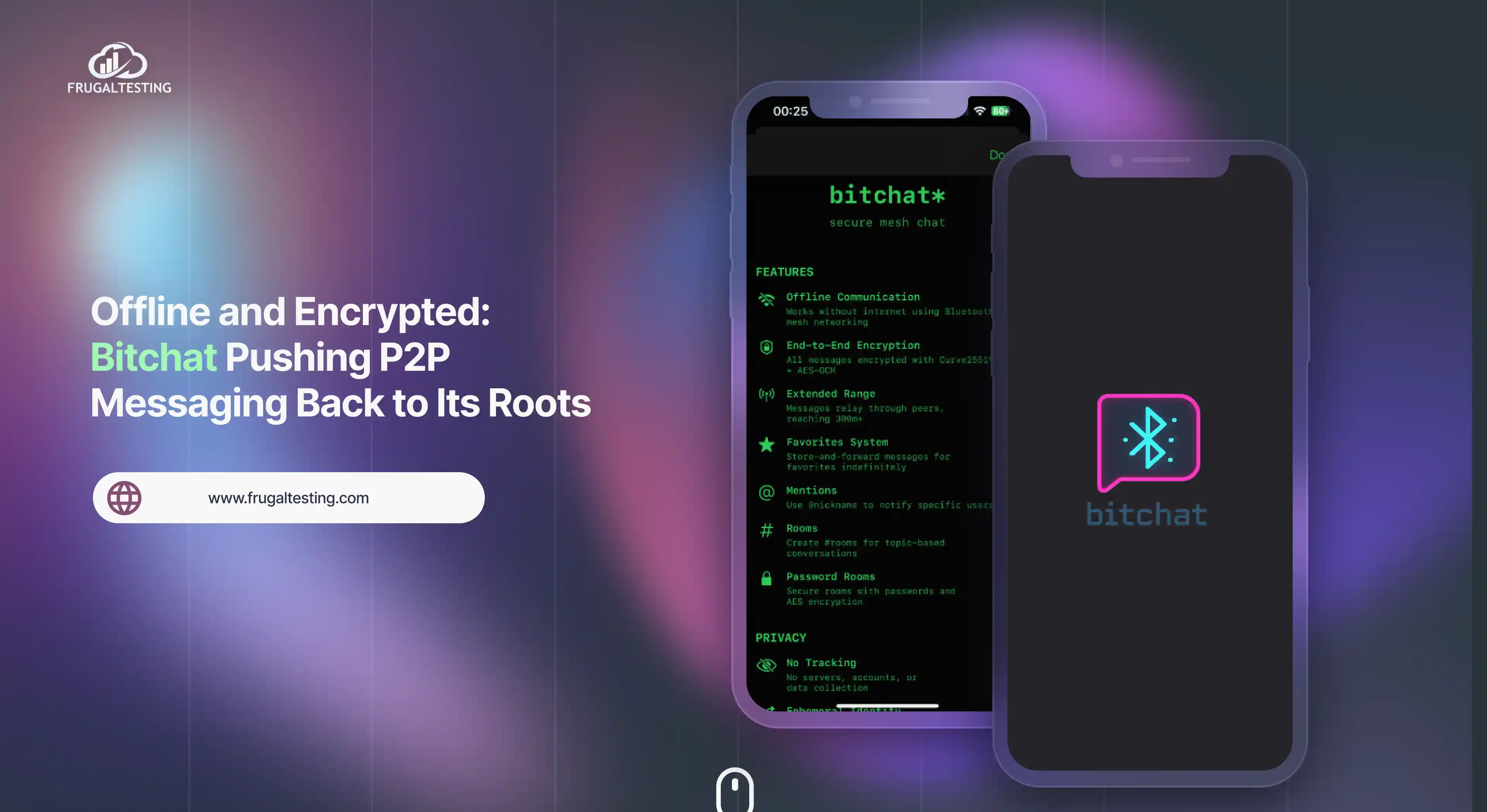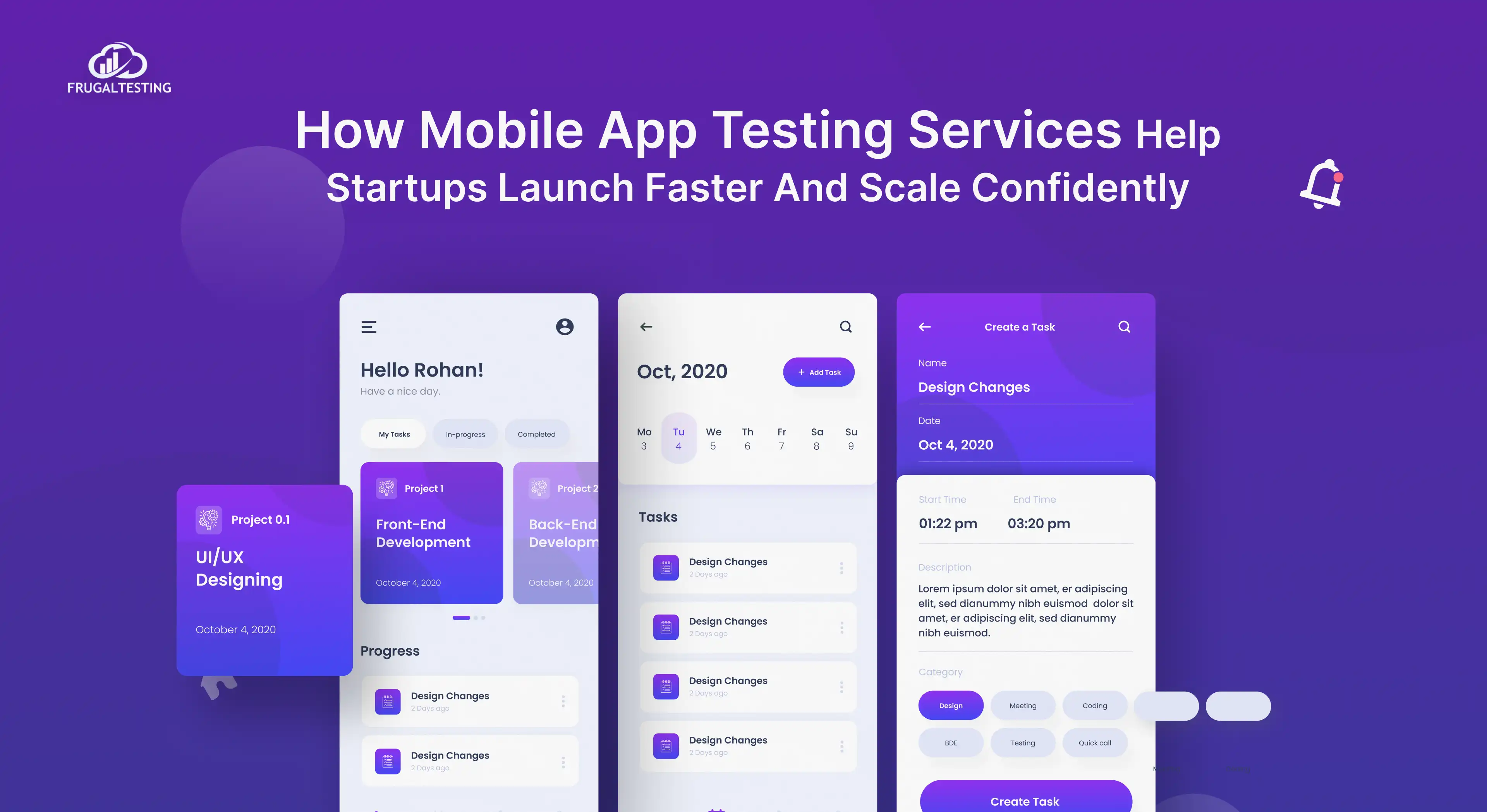The rise of UPI apps in India has transformed the digital payment boom, making UPI payments faster and more secure. Powered by NPCI UPI, these payment apps enable real-time transactions using a UPI ID, QR code, or mobile number while ensuring financial inclusion. With a wide range of UPI-enabled apps, selecting the right one depends on security features, transaction processing efficiency, and fraud prevention.
This review analyzes the top UPI apps such as Google Pay UPI, PhonePe, and Paytm, focusing on encryption strength, UPI transaction ID verification, and multi-factor authentication. Key aspects covered include transaction success rates, security vulnerabilities, fraud detection mechanisms, and compliance with industry standards. Whether you need a QR code generator free, a fake QR code checker, or financial insights, this analysis helps you pick the most secure UPI apps India for a seamless experience.
What's next? Keep scrolling to find out:
🚀 What is UPI? Real-time, mobile-first payment system.
🚀 Why Testing Matters? Boosts UPI app speed & security.
🚀 How We Test? Load, device & security simulations.
🚀 Tools We Use? JMeter, Postman, OWASP ZAP, Selenium.
🚀 Top Apps? Google Pay, PhonePe, Paytm & BHIM. 🚀
What is UPI and How Do UPI Payments Work in India?
UPI is a real-time payment system developed by NPCI India, enabling seamless financial transactions using a UPI ID, QR code, or mobile number. By integrating with payment gateways, it eliminates the need for traditional debit cards or bank account details, ensuring faster and more secure mobile payments.
To use UPI apps in India, users must create a UPI ID via trusted mobile applications like Google Pay UPI, PhonePe, or Paytm. Businesses benefit from UPI payments for businesses, while individuals enjoy hassle-free online transactions. Advanced security features, including two-factor authentication, biometric authentication, and API encryption, ensure fraud prevention. Whether scanning a QR code or using a free QR code generator, financial institutions and fintech solutions continue to enhance India’s digital economy.
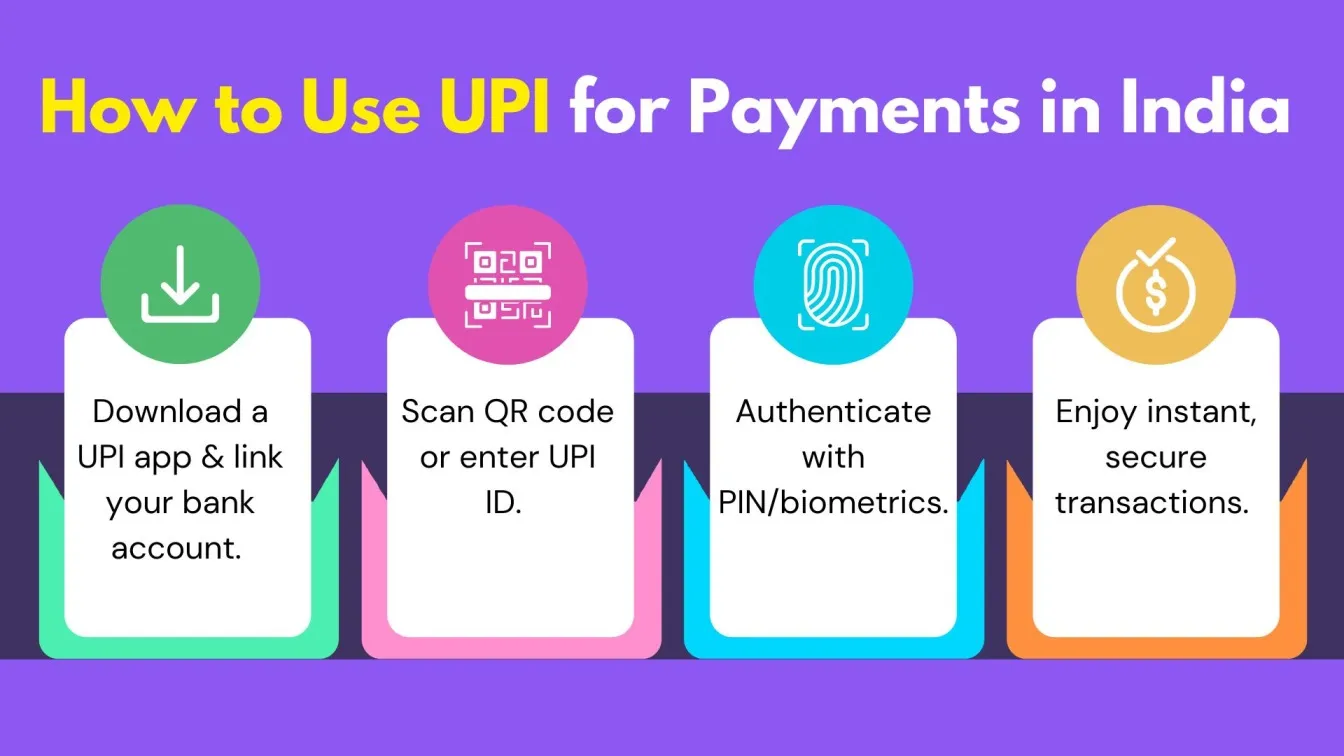
Why Software Testing Matters for UPI Apps Performance & Security Insights
As UPI apps in India continue to dominate digital transactions, ensuring UPI security and smooth performance is critical. A poorly tested mobile application can lead to failed UPI payments, security vulnerabilities, and financial risks. With multiple operating systems and a variety of devices supporting UPI, rigorous manual testing and automated testing are essential for maintaining reliability, reducing transaction fees, and improving user engagement.
Key Reasons Why Software Testing is Crucial for UPI Apps
- Ensures Secure Transactions: Protects against fraud by verifying UPI transaction ID, implementing two-factor authentication, and encrypting sensitive data through API security.
- Validates Performance: Checks transaction speed and efficiency for seamless transactions across different payment methods and payment gateways.
- Strengthens QR Code Security: Ensures safe payments via QR code scanner and prevents fake QR codes.
- Enhances User Experience: Identifies bugs in leading UPI-enabled apps like Google Pay UPI and PhonePe to maintain a smooth transaction history.
- Boosts Fintech Reliability: Supports secure digital payments in fintech software and UPI payments for businesses, ensuring compliance with financial institutions.
With proper software testing, fintech solutions can offer secure, fast, and hassle-free real-time transactions for users and businesses alike.
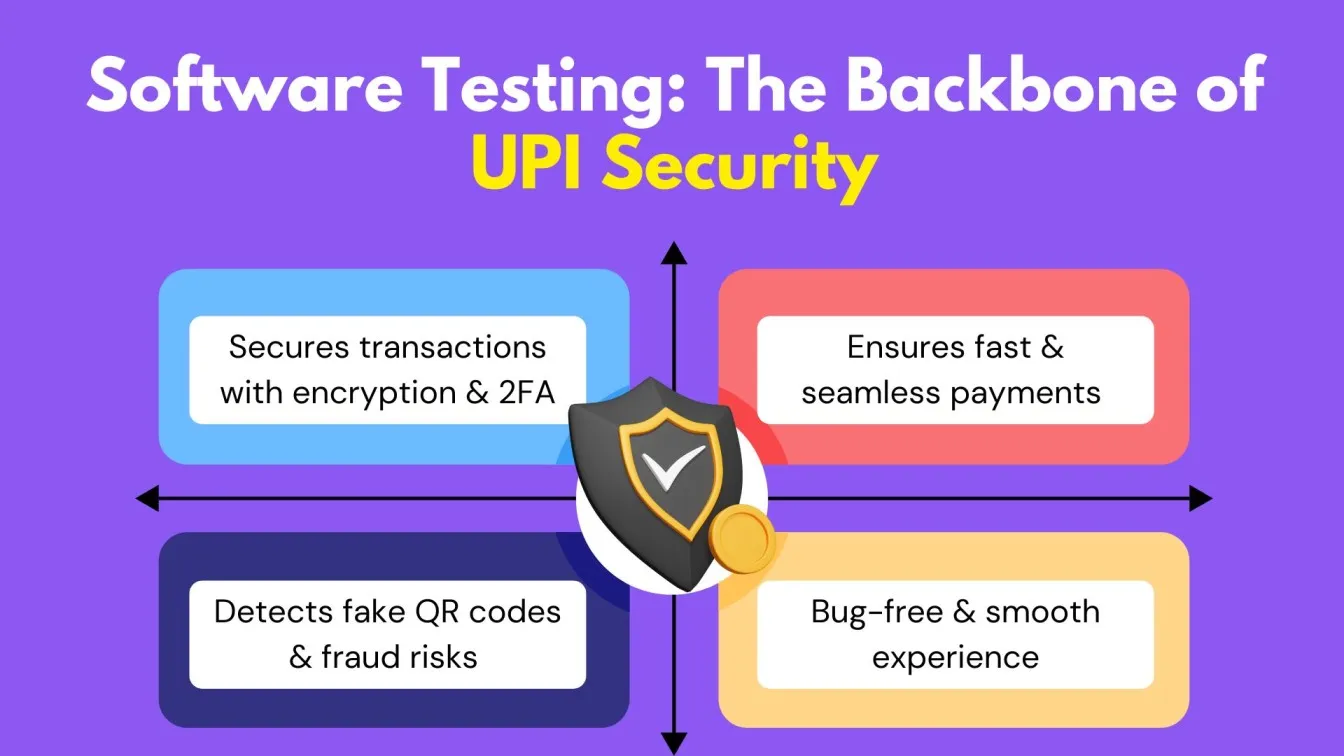
Key Performance Metrics for Evaluating UPI Apps
As UPI apps in India continue to grow, evaluating their performance and security is essential. A poorly optimized app can lead to failed UPI payments, slow transactions, and security risks. Understanding key metrics helps ensure a seamless digital payment experience.
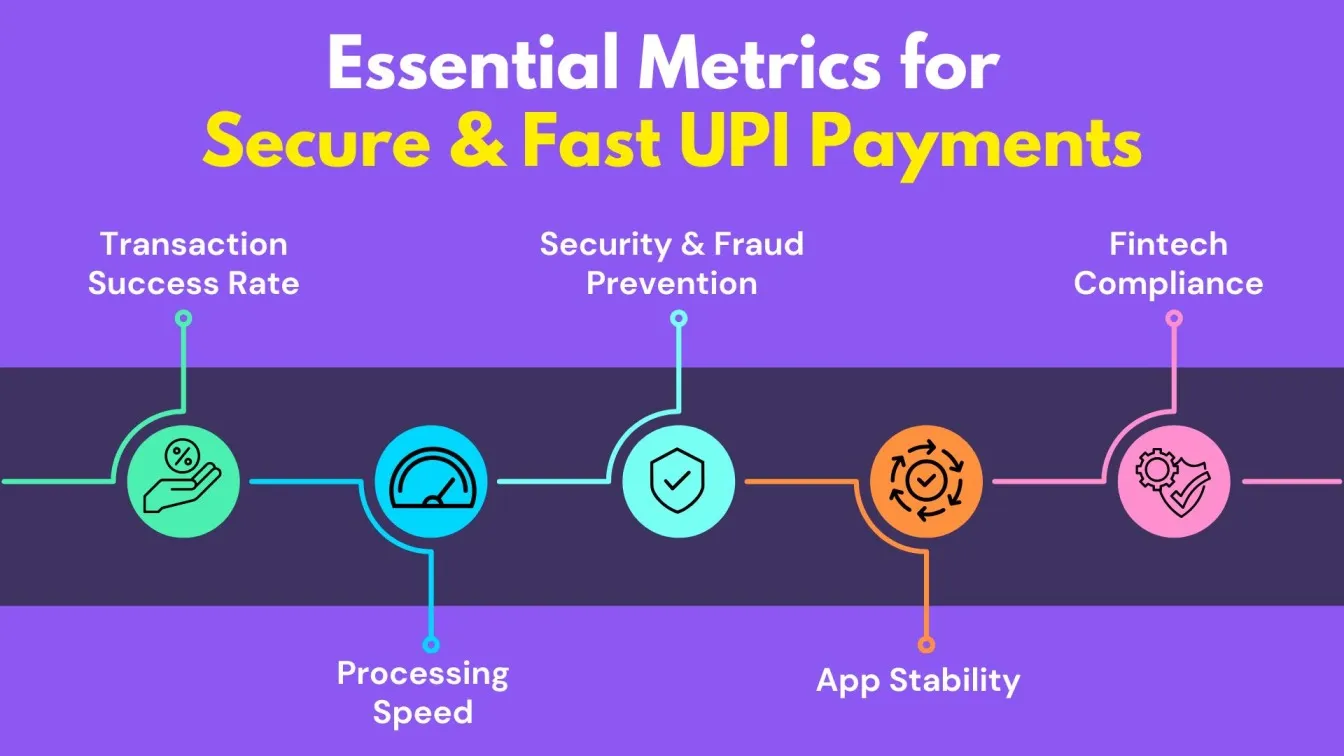
- Transaction Success Rate: Measures the percentage of successful UPI India payments, reducing failed transactions.
- Processing Speed: Ensures fast transfers using UPI ID and QR code scanner without delays.
- Security & Fraud Prevention: Implements UPI security, UPI transaction ID verification, and encryption.
- App Stability: Tests performance under high traffic, ensuring reliability for apps like Google Pay UPI.
- Fintech Compliance: Adheres to NPCI UPI regulations, ensuring safe fintech software integration.
By tracking these metrics, fintech solutions can enhance UPI payments for businesses and users, making digital transactions secure and efficient.
Performance Benchmarking: How We Tested UPI Apps Under Load
To ensure seamless integration and secure online transactions, we conducted performance testing on various UPI-enabled apps under heavy loads. A reliable mobile platform must process thousands of transactions per second without delays, failures, or security risks.
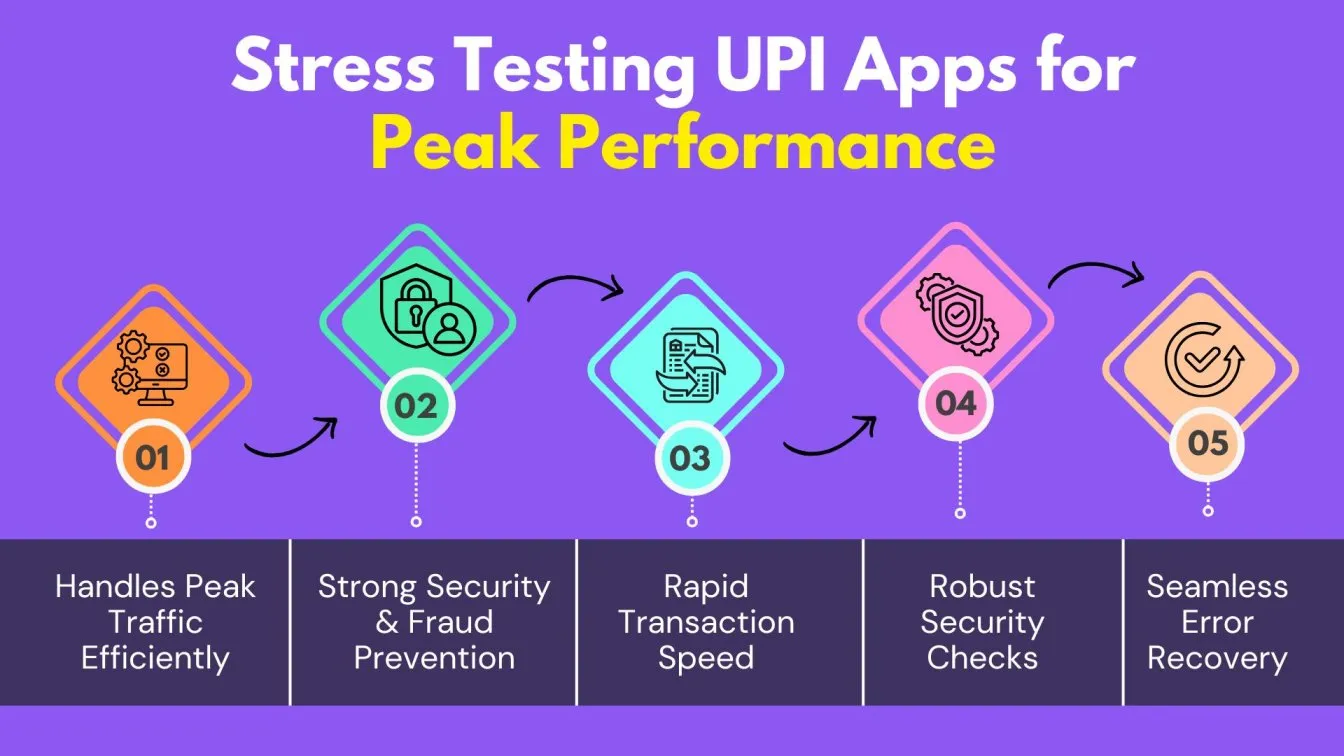
Key Aspects of Our Load Testing:
- Simulating Peak Traffic: We tested how well Unified Payments Interface apps handle high transaction volumes during peak hours on different mobile devices.
- Evaluating Response Time: Measured transaction processing speed and system stability while managing multiple bank accounts.
- Error Rate & Failure Recovery: Analyzed how apps recover from failed payments and prevent fraud risks for sensitive users.
- Security & Fraud Prevention: Assessed financial landscape security, ensuring robust protection during real-time fund transfers.
By identifying an effective solution, we ensured that UPI apps in India provide a popular choice for businesses and individuals, delivering a reliable and secure payment experience.
Multi-Device Performance: How UPI Apps Perform on Different Platforms
With online transactions becoming a necessity, UPI apps must offer a seamless experience across various devices and operating systems. To evaluate this, we conducted manual testing on leading payment apps, analyzing their performance on smartphones, tablets, and desktops.
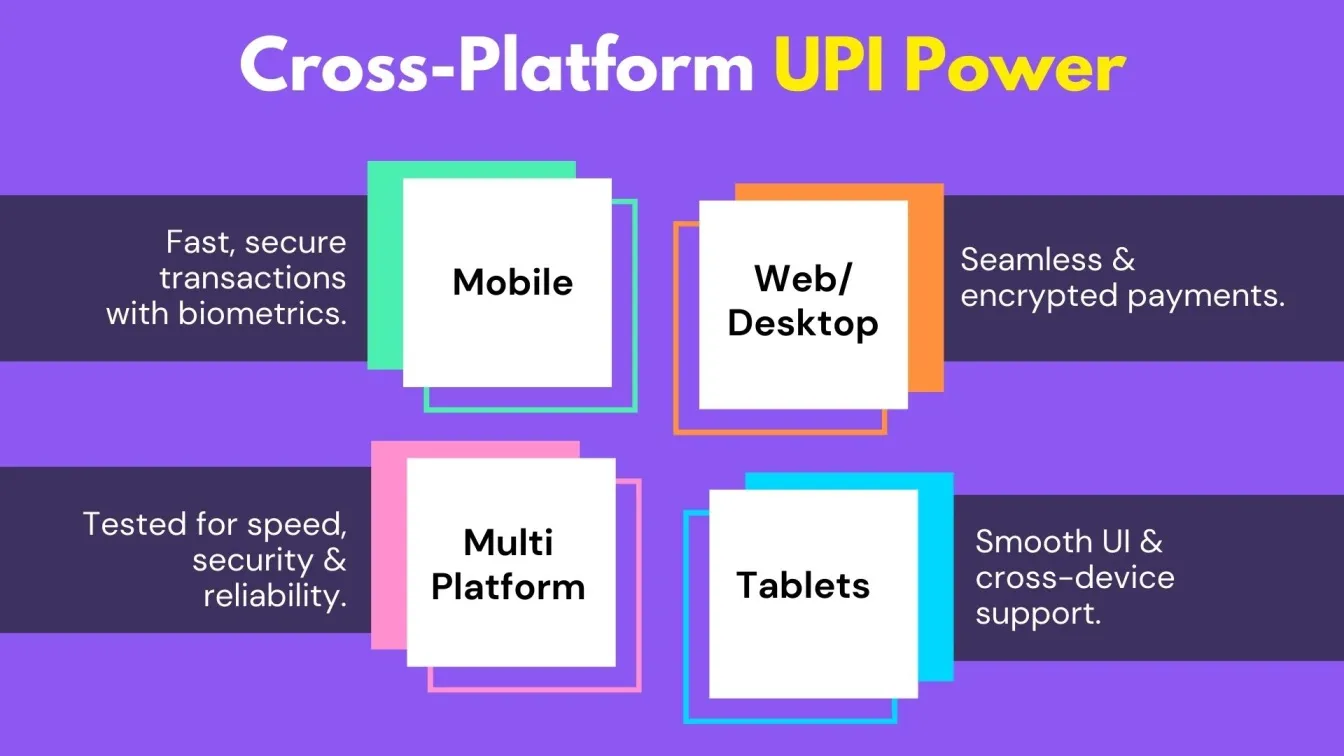
Our tests focused on volumes of transactions, transaction speed, and biometric authentication reliability across Android, iOS, and web-based interfaces. We assessed how well these apps handle credit cards, QR code apps scanning, and encryption security under different network conditions.
By testing multi-device performance, we identified which platforms ensure smooth UPI payments without glitches. A well-optimized app idea delivers a secure and efficient experience for both businesses and individual users, making digital payments more accessible and reliable.
UPI App Performance Bottlenecks & Fixes: A Tester’s Guide
Despite the widespread adoption of UPI apps in India, performance challenges can disrupt UPI payments and affect user trust. As a software tester, I have identified key bottlenecks and solutions to enhance app efficiency.
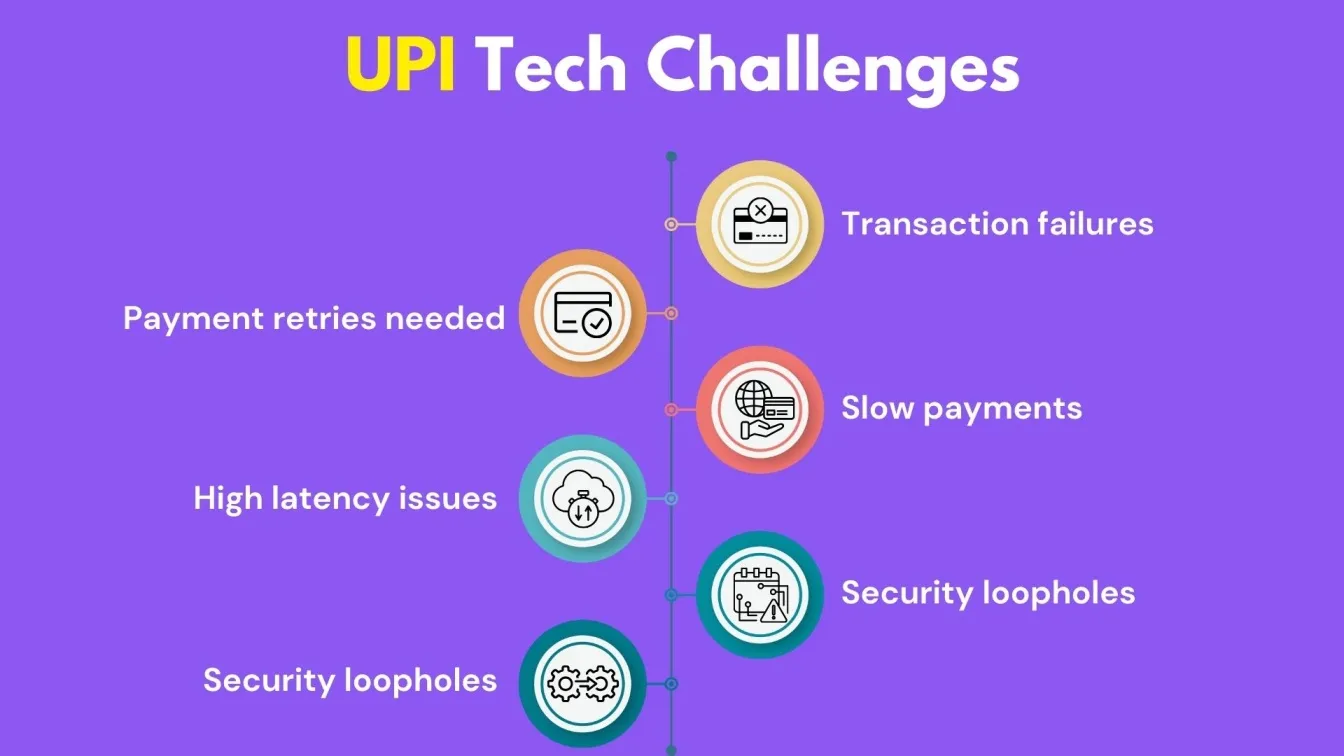
- Transaction Failures - Frequent UPI transaction ID failures due to network congestion can be resolved with optimized server response times and load balancing.
- Slow Processing Speeds - Delays in transactions using UPI ID or QR code scanner often stem from inefficient API calls. Implementing caching and faster data processing improves response times.
- Security Vulnerabilities - Fraud risks in UPI security can be mitigated with strong encryption, multi-factor authentication, and AI-based fraud detection.
- Cross-Platform Issues - Performance inconsistencies across devices in UPI apps can be fixed by optimizing FinTech applications for Android, iOS, and web-based interfaces.
Addressing these issues helps fintech solutions deliver faster, safer, and more reliable UPI payments for businesses and users.
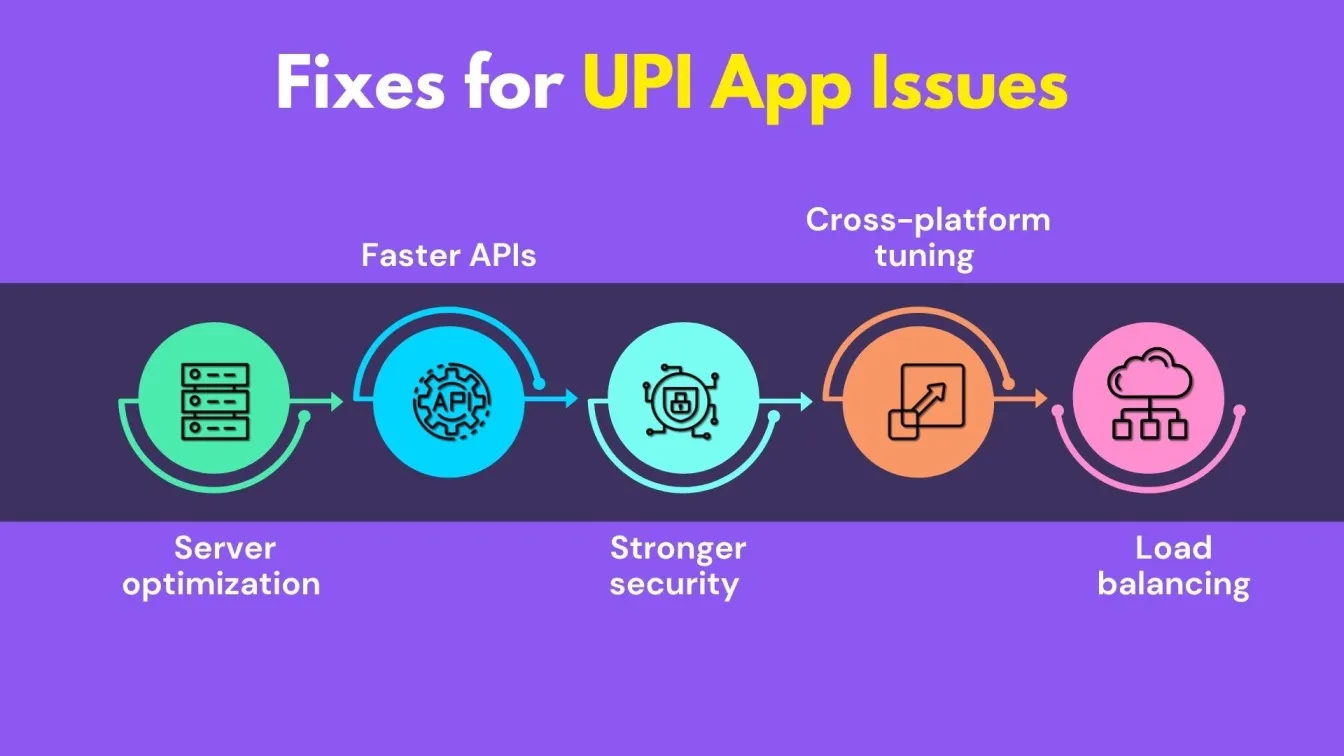
Security Measures in UPI Apps: A Software Tester’s Deep Dive
With the growing adoption of fintech apps, ensuring strong security in UPI-enabled applications is critical. As part of our compliance testing, we analyzed how leading apps protect against cyber threats while maintaining seamless fund transfers under different network conditions.
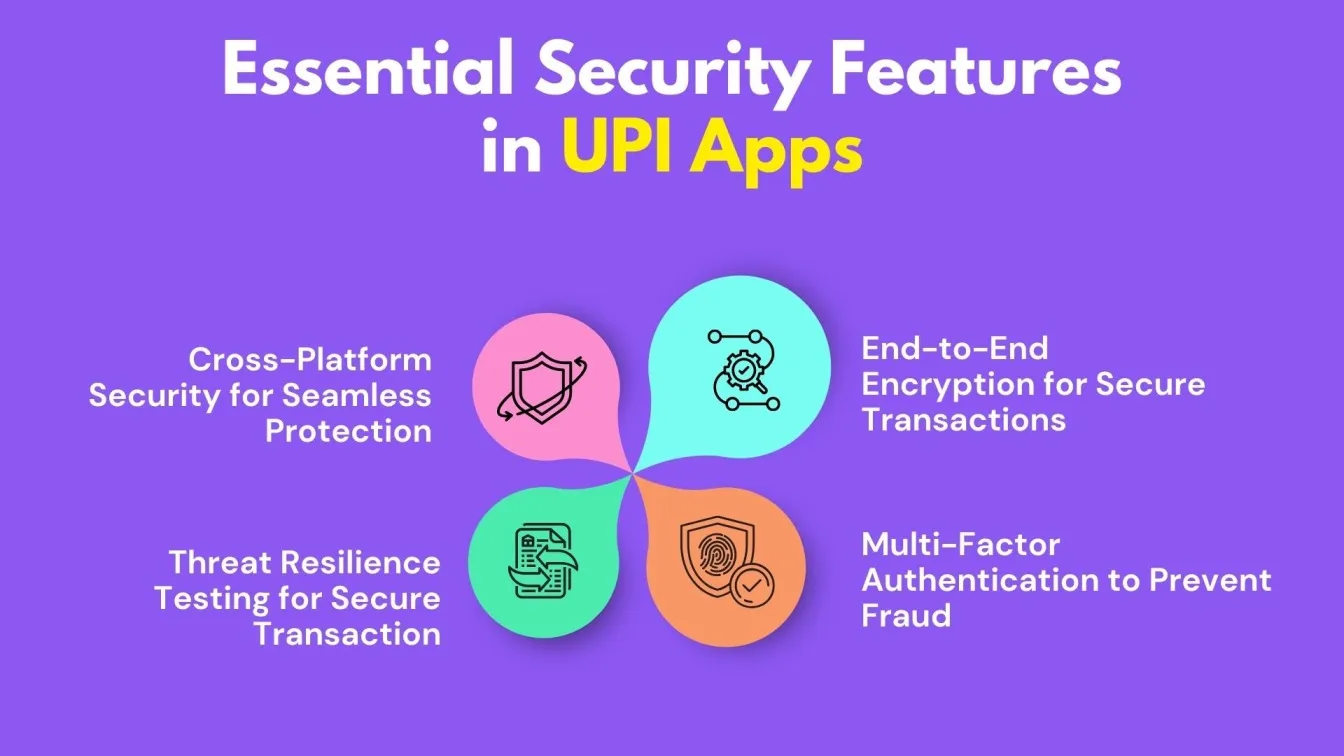
Key Security Aspects Evaluated:
- Encryption & Authentication: Secure payment methods using two-factor and biometric authentication to safeguard user data.
- Transaction History & Fraud Detection: Monitored suspicious activities and ensured transparency in transaction history.
- Performance Under Attack & Load Testing Performance: Assessed how apps maintain security under high transaction volumes and potential cyber threats, such as DDoS attacks and transaction overload scenarios.
- App Compatibility & Developer Efforts: Identified compatibility issues across different platforms, ensuring mobile app developers optimize security.
By collaborating with app developers and the development team, UPI apps can integrate advanced features to provide a popular choice for secure digital payments.
How Software Testers Simulate Real-World UPI App Security Threats
Software testers rigorously simulate real-world security threats in UPI apps to ensure robust protection against cyber risks. By leveraging advanced testing techniques, they help fintech companies safeguard user data and financial transactions.
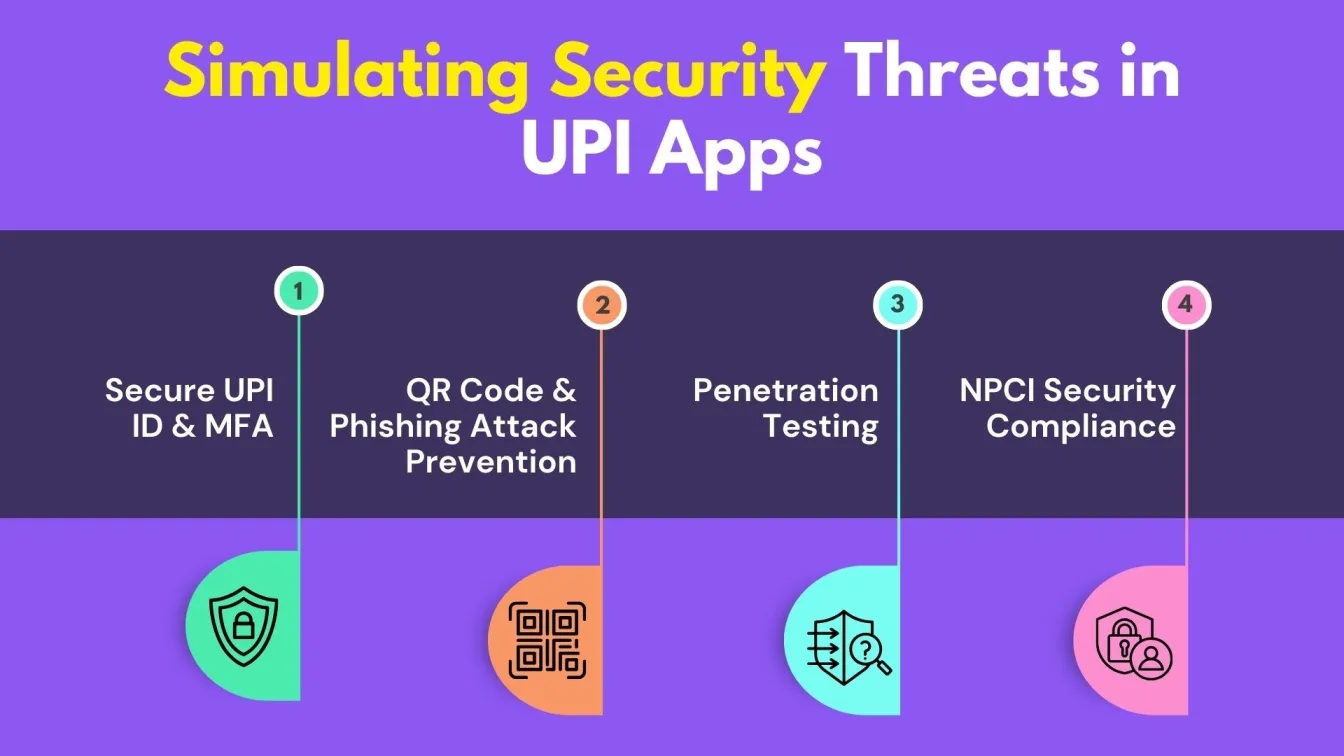
- Penetration Testing: Simulates cyberattacks like phishing, man-in-the-middle (MITM), and DDoS to identify vulnerabilities.
- Encryption & Data Security Testing: Ensures end-to-end encryption for secure data transmission.
- Multi-Factor Authentication (MFA) Validation: Tests biometric, OTP, and device-based authentication for fraud prevention.
- Session & API Security Testing: Verifies secure API integrations and session management to prevent unauthorized access.
- Fraud Detection Mechanisms: Evaluates real-time monitoring and anomaly detection to flag suspicious transactions.
- Load & Resilience Testing: Simulates cyberattacks and high traffic to assess security under stress.
- Cross-Platform Security Checks: Ensures security remains intact across different devices and operating systems.
- AI-Driven Security Scans: Uses automation to detect and fix emerging security threats proactively.
By implementing these security measures, testers help UPI apps maintain high performance while ensuring strong protection against evolving cyber threats.
Tokenization in UPI Transactions: How It Improves Security
Tokenization is revolutionizing security in UPI payments, ensuring safer digital transactions for users and businesses. By replacing sensitive data like UPI IDs, credit cards, and debit cards with encrypted tokens, it minimizes fraud risks and enhances data protection.
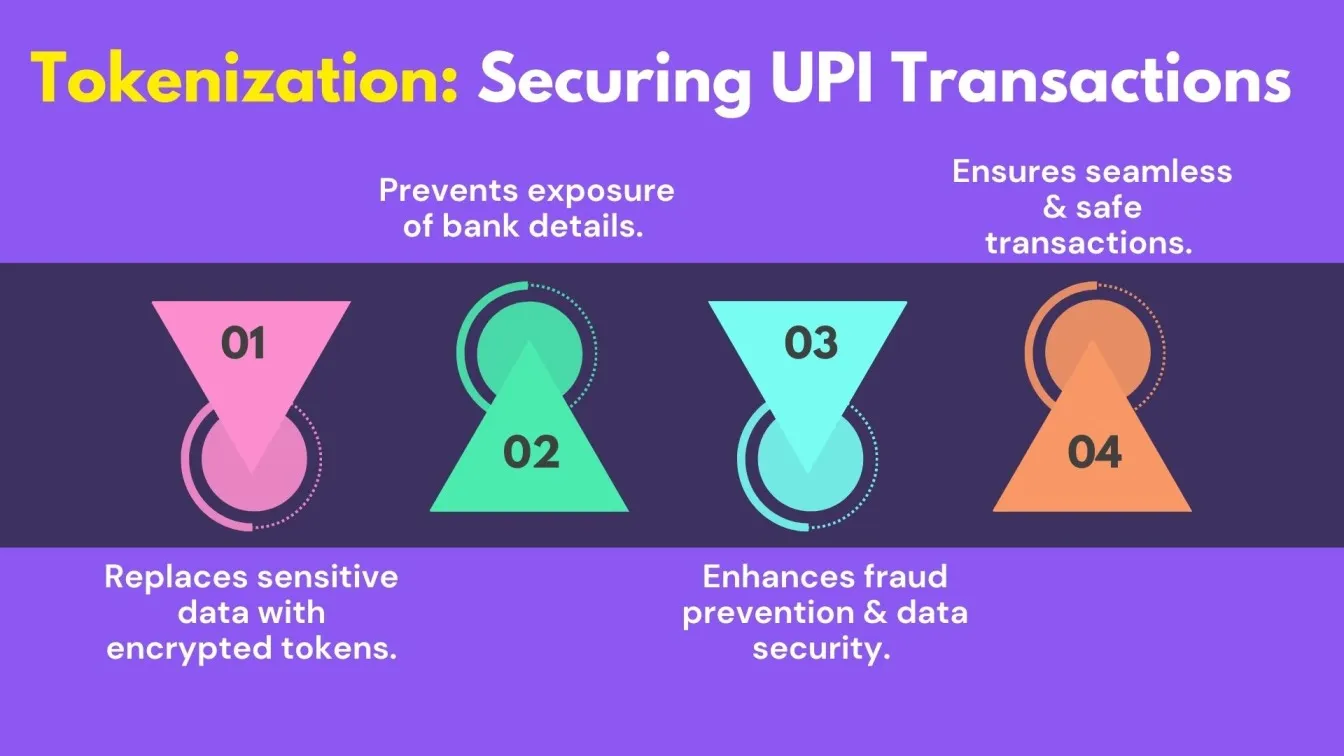
- Prevents exposure of actual bank account details during online transactions, safeguarding financial data.
- Strengthens security across various operating systems and payment gateways, reducing cyber threats.
- Ensures seamless fund transfers in financial applications without compromising sensitive information.
- Enhances fraud prevention by eliminating the need to store raw payment details in UPI-enabled apps.
- Boosts compliance with security regulations, making digital transactions safer for businesses and users.
As UPI transactions grow, tokenization is becoming a key factor in improving fintech security, offering a seamless and secure digital payment experience.
Tools Used for UPI App Performance and Security Testing
Ensuring the reliability of UPI apps requires robust performance and security testing tools. Software testers utilize specialized tools to detect vulnerabilities, optimize transaction speed, and enhance user security.
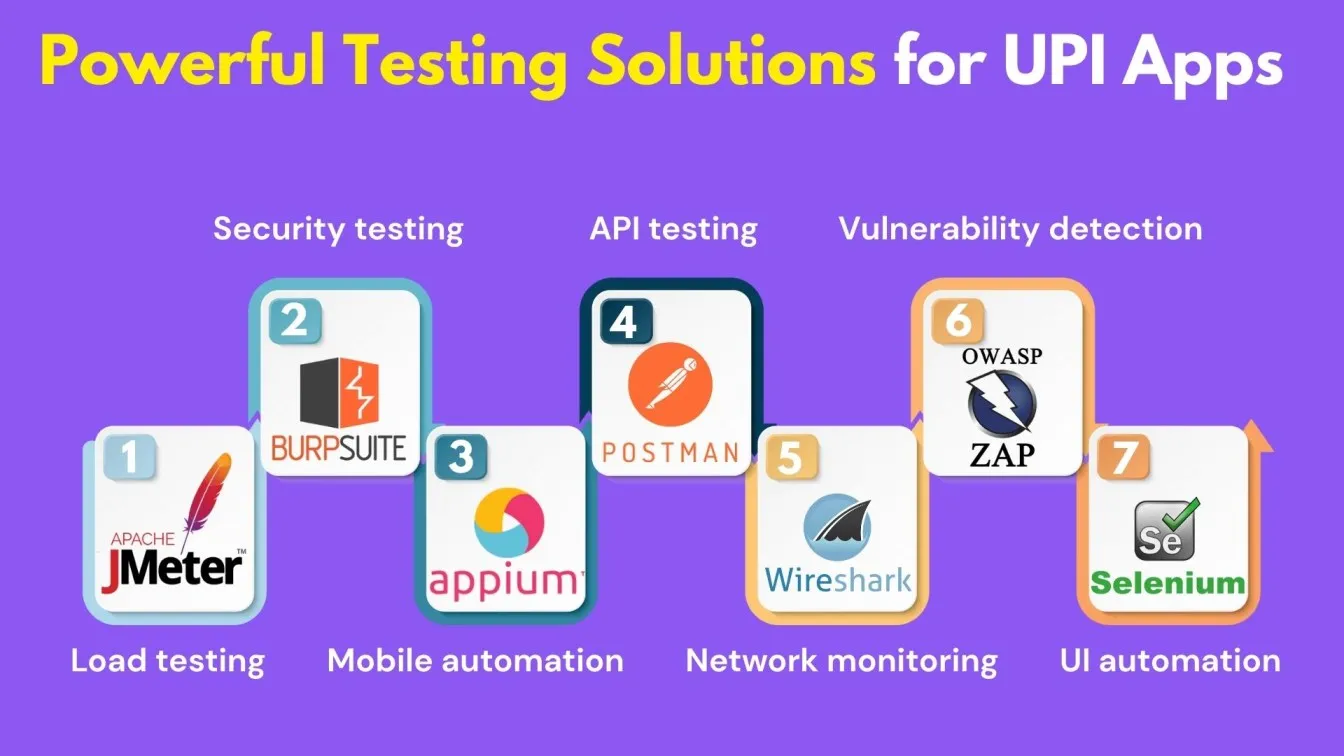
- JMeter - Conducts load testing to evaluate app stability under high volumes of transactions.
- Burp Suite - Identifies security loopholes in payment gateways and encryption layers.
- Appium - Automates mobile application testing across different operating systems to ensure a seamless experience.
- Postman - Validates Application Programming Interface (API) integrity for secure UPI transactions.
- Wireshark - Monitors network conditions to detect potential cyber threats.
- OWASP ZAP - Detects vulnerabilities in UPI apps to strengthen security measures.
- Selenium - Performs automation testing to ensure UI responsiveness and user engagement across platforms.
By leveraging these tools, fintech apps enhance security, improve transaction efficiency, and provide a seamless UPI payment experience
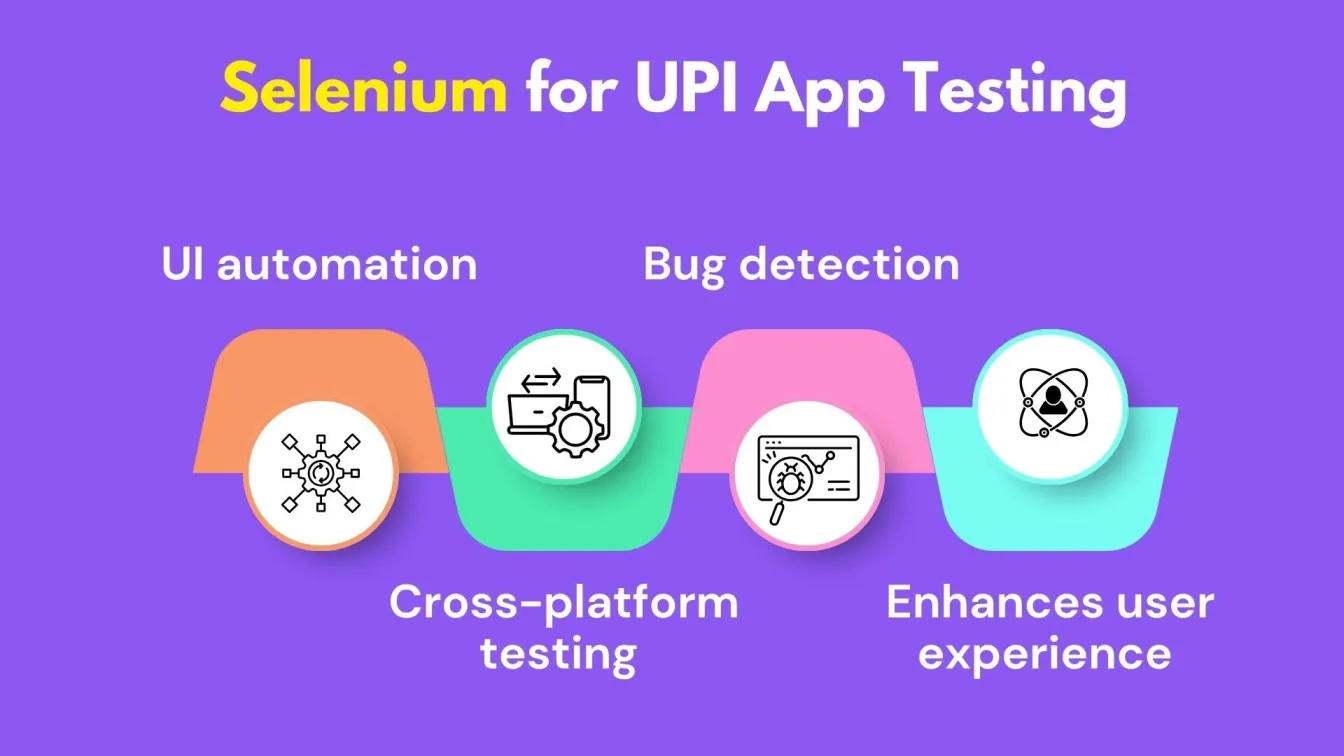
Top-Rated UPI Apps in India for Quick and Secure Money Transfers
With India's fintech industry booming, UPI apps have become the backbone of digital payments, ensuring secure and instant transactions. Whether you need to transfer money using a UPI ID India, scan a QR code, or pay businesses, choosing the right app is crucial. Here’s a list of the top UPI apps in India, evaluated based on security, speed, and real-world performance.
Google Pay - Fast Transactions with Strong Security
Google Pay combines speed and security to offer a reliable UPI payment experience.
It’s designed for effortless transactions with advanced protection features.
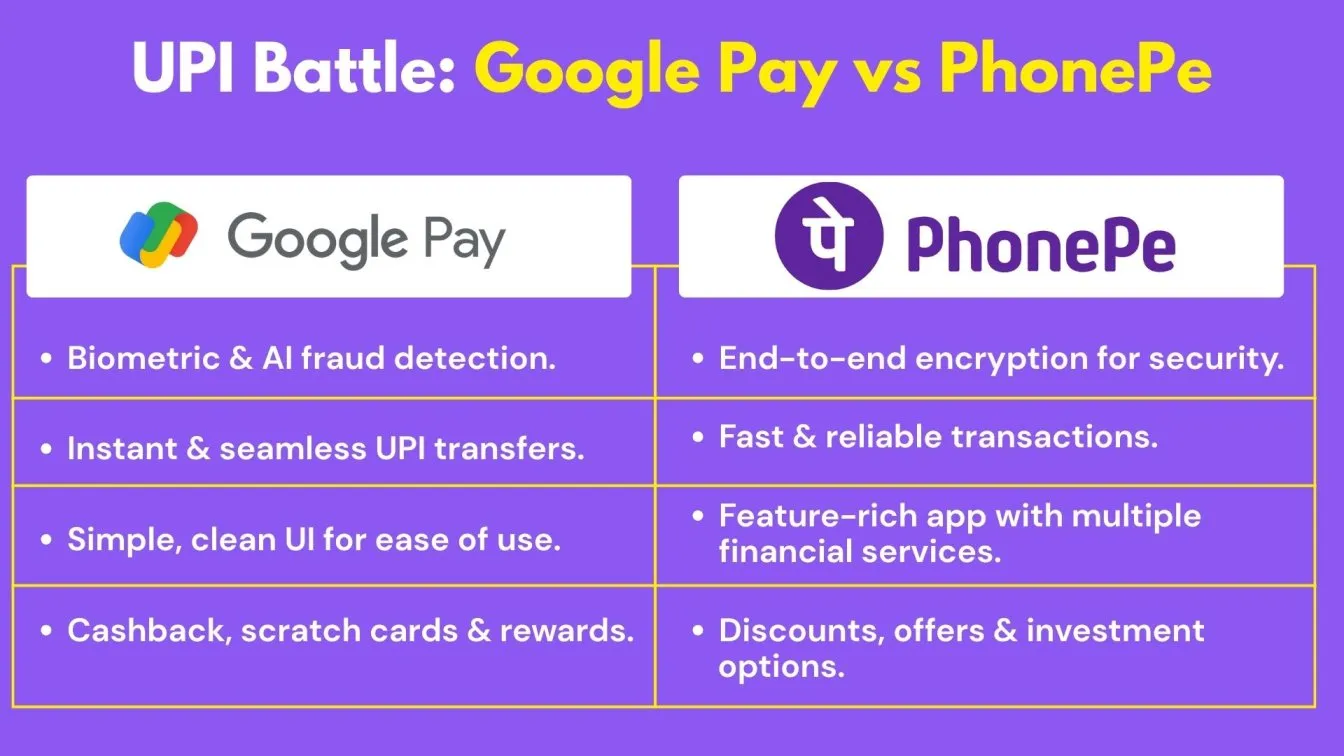
- Supports Google Pay UPI ID for seamless money transfers.
- Uses biometric authentication and AI-driven fraud detection.
- Example: Many e-commerce platforms like Flipkart allow direct checkout via Google Pay UPI.
- Earns cashback and rewards for transactions, boosting user engagement.
- Works across multiple devices with a smooth interface, ensuring a great user experience.
PhonePe - Versatile UPI App for All Payment Needs
- Offers UPI ID example-based transactions and bill payments.
- Ensures fintech payments security with multi-layer encryption.
- Example: Local Kirana stores widely accept PhonePe QR code payments for instant transfers.
- Supports multiple payment methods, including debit/credit cards and wallets.
- Allows investment in mutual funds, insurance, and gold purchases directly through the app.
Paytm UPI - Business-Friendly & Multi-Purpose
- Supports various fintech services, including credit card bill payments and wallet-to-bank transfers.
- Integrates with payment gateways for online businesses.
- Example: Paytm is widely used for metro card recharges and online food ordering apps.
- Enables UPI ID means transactions, ensuring instant fund transfers to any bank.
- Offers Paytm Postpaid, allowing users to spend now and pay later.
BHIM UPI - NPCI’s Official UPI Solution
- Provides a simple UPI ID means-based interface for direct bank transfers.
- Ensures government-backed security and reliability.
- Example: Government schemes like PM Kisan use BHIM UPI for direct benefit transfers.
- Supports transactions with fintech examples like e-RUPI for prepaid voucher payments.
- Works with multiple fintech services, ensuring seamless utility and tax payments.
With fintech examples like these, India's UPI apps list continues to grow, revolutionizing how we make digital payments.
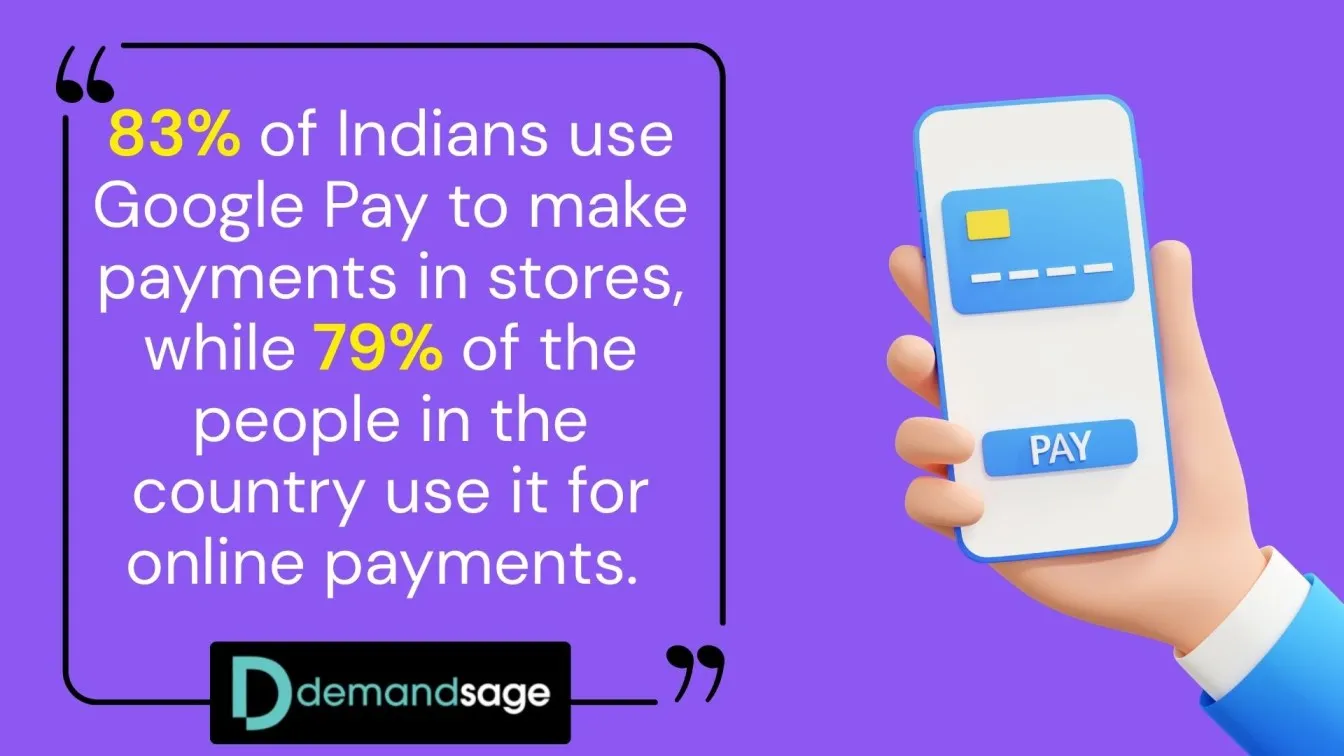
Future Trends in UPI App Security and Performance
As UPI apps continue to grow, advancements in fintech services and cutting-edge technologies are reshaping security and performance. With increasing transaction volumes, robust innovations are essential for secure and seamless digital payments.
- AI & Machine Learning for Fraud Detection: AI-powered fraud detection will analyze transaction patterns in real-time, helping identify fraudulent activities before they occur.
- Blockchain for Enhanced Security: Decentralized and tamper-proof transactions will improve transparency and protect user data.
- Quantum Cryptography for Data Protection: This emerging encryption method will safeguard sensitive UPI ID and bank account details from cyber threats.
- Edge Computing for Faster Transactions: Reducing server dependencies will enhance processing speed and minimize network delays.
- Cloud-Native UPI Apps: Scalable cloud-based architectures will ensure reliability, even under heavy transaction loads.
- Voice-Activated Payments: AI-driven voice recognition will allow secure hands-free transactions, improving accessibility.
These advancements will drive the next era of UPI payments, ensuring faster, safer, and smarter digital transactions in the evolving fintech industry.
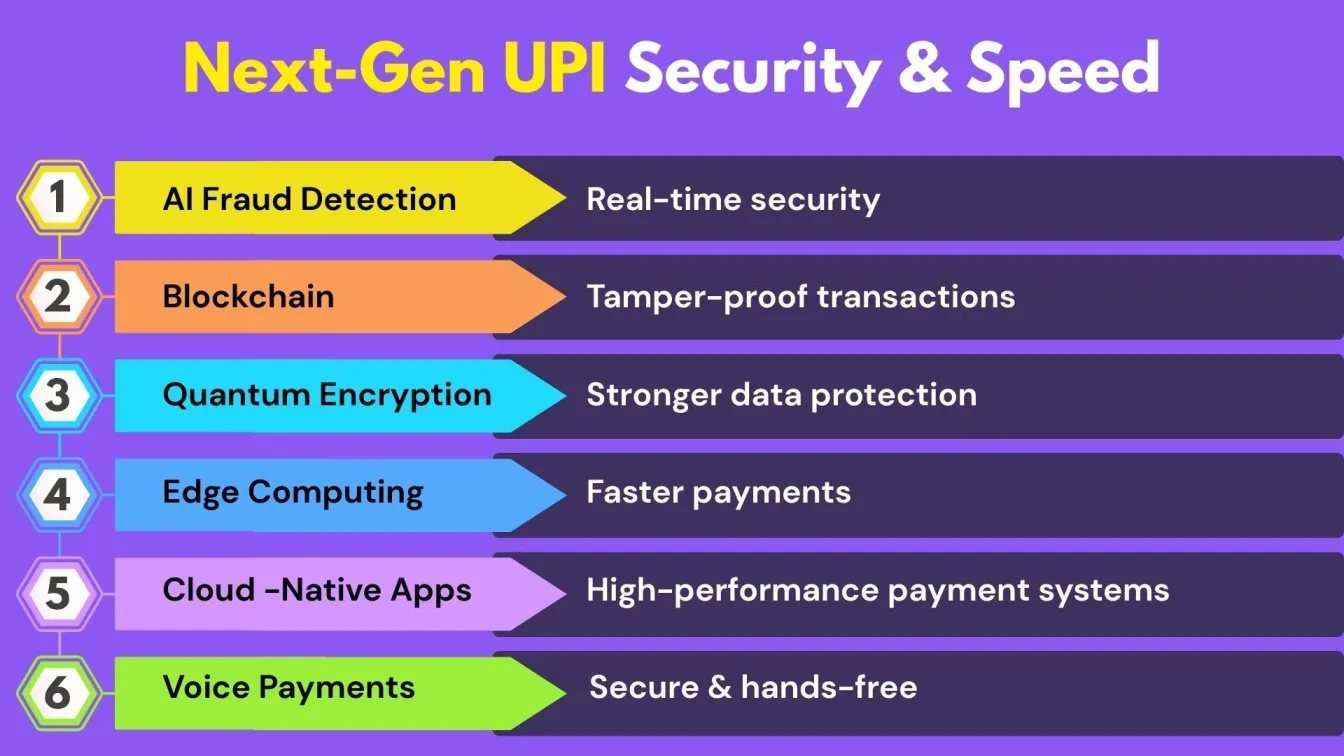
Wrapping Up! 🚀
This blog offers a detailed review of India’s top UPI apps, including Google Pay, PhonePe, Paytm, and BHIM UPI, focusing on performance, security, and fraud prevention. It highlights key security features such as biometric authentication, encryption, and AI-driven fraud detection. Software testing plays a crucial role in ensuring seamless transactions, using tools like JMeter, Burp Suite, and Appium. Understanding business requirements, transaction fees, and a user-friendly interface is crucial for optimizing UPI app performance and security. The blog also compares UPI with PayPal, examines bank failure rates, and emphasizes the importance of UI/UX in digital payments.
Looking ahead, future fintech trends like blockchain security, cloud-native UPI apps, and quantum cryptography are set to enhance transaction safety. The blog also explains how testers simulate high transaction loads to ensure app stability and discusses the role of tokenization in securing sensitive payment data. As digital payments continue to grow, these advancements will make UPI apps more secure, reliable, and efficient for businesses and users in India’s fintech landscape.
Frugal testing helps optimize costs while ensuring quality, making it essential for software testing companies. Load testing services, Selenium automation testing services, and UPI integration APIs enhance performance, security, and seamless digital transactions.
People Also Ask:
Is UPI better than PayPal?
UPI offers instant, zero-fee transfers in India, while PayPal is better for international payments with wider global acceptance.
Why UI/UX Performance Matters in UPI Apps?
A seamless UI/UX ensures real-time transactions, reduces manual efforts, enhances a user-friendly interface, and delivers a consistent user experience. Optimized design minimizes errors, speeds up transaction fees processing, and boosts trust in UPI-enabled apps for digital payments.
How do testers simulate high transaction loads?
Testers use load testing tools like JMeter and Locust to simulate peak-hour UPI transactions, ensuring app stability under heavy traffic.
Which Bank has the lowest UPI failure rate?
Private sector banks such as HDFC Bank, Axis Bank, ICICI Bank, Yes Bank, and IDFC First Bank have the lowest UPI failure rates, averaging around 0.04%
How will UPI app security evolve in the future?
UPI app security will advance with AI-driven fraud detection, biometric authentication, tokenization, and blockchain for safer transactions.



.webp)

%201.webp)
